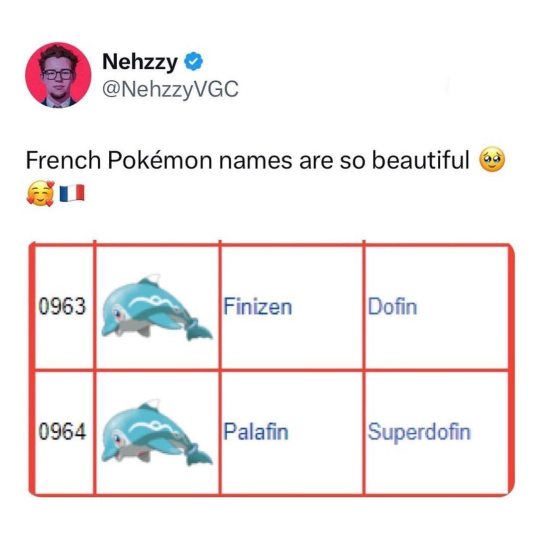#untranslatable
Explore tagged Tumblr posts
Text

123 notes
·
View notes
Text
'you're the only friend I have left' mm, I guess if we stretch the meaning of friendship to the point it's no longer recognizable, then yes, Yoruasa is your friend
#chainsaw man#csm spoilers#friend; is that we call girls we want to fuck no matter if they sexually assaulted me#untranslatable
14 notes
·
View notes
Text
Nobody has ever measured, not even the poets, how much the heart can hold.
Zelda Fitzgerald
4 notes
·
View notes
Text

Mouseys - En Garde-Manger
- Bread yourself!, en garde! - Step aside, rice-call! - You'll never pasta me, I'll box you right there! - Can you do it? Halva you!
/* Pencil doodle on A6 sketchbook - Porte-mine sur carnet A6 */ /* Part of the Mouseys Adventures series */ - En garde-manger ! - Sel et Rat, hors de mon chemin ! - Sur mon eau de vie, tu ne passeras pas ! - C'est ce qu'on va voir, gare à tes pâtes !
8 notes
·
View notes
Text
Thought I should ask, but should I translate posts I make with:
Format 1: Chinese and then English after every paragraph, as per the Sun Ce rant
Format 2: All the Chinese then all the English
Format 3: All the Chinese then reblog with English
Format 4: All the English then reblog with Chinese
Format 5: Chinese under read more
Here's the propaganda for every format.
1: Can easily reference and compare En/Cn, useful for learners, I guess.
2: Makes it extremely clear that the En came after the Cn, excusing me of any poor writing.
3: 2, but slightly more organised
4: So the Cn can be removed when reblogging because people can and will scroll away from an obviously foreign language post
5: 4, but I plague you forever and people get to pick to stare at Cn glyphs
All of these take more or less the same effort and the content will be exactly the same. "Do whatever you want" is not a valid answer as "whatever I want" is not translating shit and that is quite rude on an En dominated site.
3 notes
·
View notes
Text
To be stared at, all the time, everywhere. Except to describe it as staring is already to misrepresent it, to conjure up an image of a long, fixed, open-eyed sort of look with a discernible owner, and while there are some of those, like the man who waits in the road outside your flat and stands still and solid as a rock as you pass, glaring at you with hatred in his eyes, it mostly does not feel that way. Rather, it is the glance thrown furtively, a move performed less with the whites of the eyes and more the dark of the eyelashes, so that en masse, the sensation is that of being caressed by a hundred feathered wings, or cut by a hundred tiny blades. Chira-chira is the word for it, this scattered, stolen look, the same word used for the soft twinkling of the stars, a light fall of snow, the fluttering of candlelight.
Polly Barton, Fifty Sounds
2 notes
·
View notes
Text
that's precisely it, though, you can't call it schlurp when you could be calling it

leckendezunge
(insert usual disclaimer about how this is google translate and I do not speak German and would of course defer to a real German speaker telling me a better way to combine these thoughts)
Sinistea -> Fatalitee appears to be a pretty faithful translation, though!



#I wish I could say that two of the suggested languages being hmong and lingala#is because I'm a linguist and have needed to run these translations#but actually firefox is just handling this site stupidly and selected those itself before I got to English and German#linguistic cross pollination#translation#untranslatable#I AM a linguist to be clear#that's just not relevant to the occurrence at hand
44K notes
·
View notes
Text

14 notes
·
View notes
Text
Isn't that what davka means?
I’ve read so many posts about how you can’t translate the word sisu, or ones that try to translate it into grit, bravery or resilience. It’s spite. It’s pure spite, except nobody has offended you yet so you’ve got nobody to spite by it, so you’re just pre-emptively spiting anyone who might dislike what you’re doing, by persisting to do it.
Actually, come to think of it, it comes with an assumption that someone, either God, the government, or people at large want you to fail, and are just waiting for you to give up and die. So you are sticking to your goals in order to spite people who want you harm and want you to perish, who may be completely imaginary. A hardy, determined fuck you to an imagined group of haters.
…Maybe this is an uniquely finnish sentiment.
571 notes
·
View notes
Text
youtube
Fugazi - "Margin Walker"
1 note
·
View note
Text
I too, am untranslatable.
Walt Whitman
#walt whitman#Walt Whitman quote#life#life quote#love#love quote#untranslatable#energy#life force#spirit#O Captain! My Captain!
0 notes
Text
"Slender Aphrodite has struck me down with the hand of an enchanting creature."
i got this book of sappho's poetry only to find out it has translations that paint sappho as straight. like this absolute classic that every dyke knows by heart

istg i hate cishet academics so much.
2K notes
·
View notes

